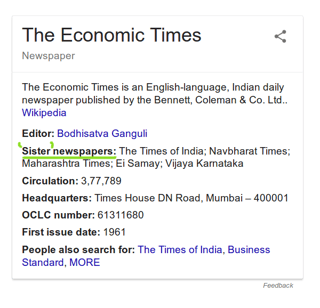Recently while I was searching for the information of one of my favourite newspaper I came across an interesting thing about the gender of newspapers. For every newspaper that was owned by a single organisation, they were using the term "sister newspapers" as given in the image attached. I googled and searched about 'newspaper' but could not find any dictionary classifying it into male or female.
Although I understand what they wanted to imply but I want to understand why they used the term "sister newspapers" (grammatical logic behind it).
https://en.wikipedia.org/wiki/Sister_paper - This is the definition of 'sister paper' as per Wikipedia but it is not satisfying enough to understand the grammatical logic behind using it.

